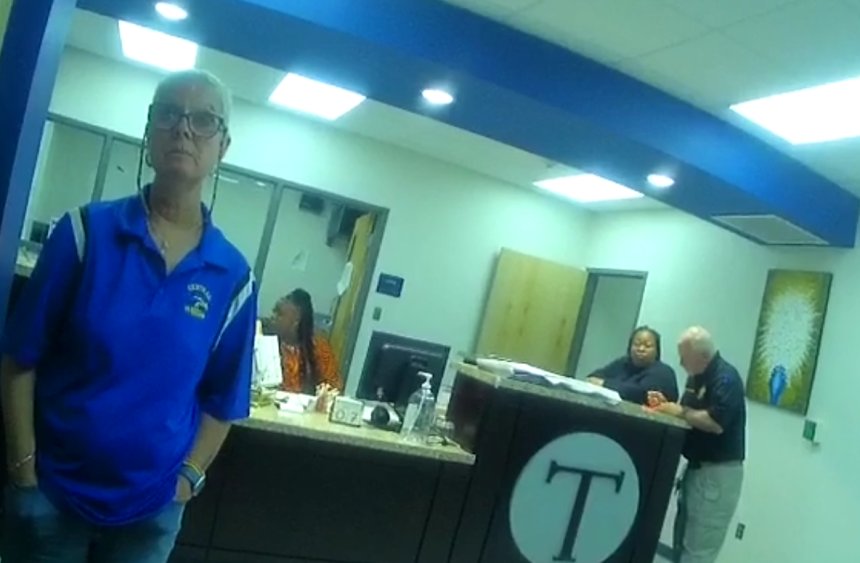Talbot County Sheriff’s Office in Legal Trouble After Ignoring Open Records Lawsuit
TALBOTTON, GA — The Talbot County Sheriff’s Office is one step closer to losing a major transparency lawsuit after failing to answer a civil complaint filed by Georgia Transparency founder Russell Pickron. The suit, Case No. 2025-CV-075, alleges repeated violations of Georgia’s Open Records Act (O.C.G.A. § 50-18-70 et seq.), and the defendant’s silence now places her legally in default — a status that could carry serious consequences.

Sheriff’s Office Defendant Served but Never Responded
According to official court records, Deputy Sheriffs personally served Beverly Miller, the Sheriff’s Office’s records custodian, on September 12, 2025, at 188 Jackson Avenue in Talbotton — the Sheriff’s headquarters.
Under Georgia’s civil procedure (O.C.G.A. § 9-11-12(a)), a defendant has 30 days from the date of service to file an answer or responsive pleading.
That deadline expires in mid-October. With no answer, no motion, and no acknowledgment from Miller or the Sheriff’s Office, the law presumes the allegations in the complaint to be admitted as true. The case is now in default, giving the plaintiff the right to move for a Default Judgment under O.C.G.A. § 9-11-55.
What “Default” Really Means
In Georgia civil law, a “default” isn’t a minor clerical issue — it’s effectively a confession by silence.
Once default is entered:
- The defendant loses the right to contest liability.
- The court accepts the facts of the complaint as established.
- The case moves directly to a damages or penalty phase, where the judge decides what the defendant owes.
Pickron can now request a Default Judgment ordering Miller to:
- Produce the withheld records;
- Pay civil penalties up to $2,500 per violation;
- Reimburse litigation costs and potential attorney’s fees; and
- Comply with injunctive relief preventing future violations.
If granted, the ruling would represent one of the strongest transparency judgments ever entered against a Talbot County official.
Inside the Complaint
Filed on September 8, 2025, the eight-count complaint accuses Miller of ignoring multiple June 2025 open-records requests, giving inconsistent statements about her email use, and providing no legal exemptions or timeframes as required by law.
The complaint seeks:
- Declaratory relief, affirming that Miller violated the Open Records Act;
- An injunction, forcing compliance;
- Civil penalties under O.C.G.A. § 50-18-73(b); and
- Costs of litigation for acting without substantial justification.
Legal Experts: “Default Equals Admission”
Georgia courts have consistently held that when a defendant fails to respond, the complaint’s factual allegations are deemed admitted. In Fulton County v. SOA, the Court of Appeals explained that default “is tantamount to an admission of liability.”
Once default is entered, the judge’s discretion is limited to determining damages or statutory penalties — not revisiting whether the law was broken. That means Beverly Miller, by failing to respond, may have already lost the case on the merits.
A Test of Transparency and Accountability
This case underscores a growing tension between citizen journalists and local government agencies in Georgia. The Open Records Act, designed to ensure government transparency, is only as effective as the officials who obey it.
“When public agencies ignore lawsuits the same way they ignore open-records requests, it shows a deeper culture of arrogance,” Pickron said in a statement. “Public records belong to the people — not the Sheriff’s Office.”
If the court grants a default judgment, it could result in personal financial penalties against Miller, since open-records violations under O.C.G.A. § 50-18-73(b) apply to individual custodians, not just their agencies.
Next Steps: Motion for Default Judgment and Hearing
Pickron is now preparing to file a Motion for Default Judgment and Request for Damages Hearing, where the court would determine:
- The number of separate violations,
- The applicable civil penalty for each, and
- Whether injunctive relief is warranted.
A hearing date would allow Pickron to present emails, call recordings, and correspondence as evidence of noncompliance. Because the defendant has waived her right to defend, the hearing’s purpose would be strictly to establish penalties and costs — not to re-litigate facts.
The Bigger Picture
This case could become a precedent-setting reminder that Georgia’s Open Records Act carries real consequences. For public officials across the state, it’s a warning that silence is costly — both financially and politically.
For citizens, it reaffirms that government transparency is a constitutional right, not a favor granted at the whim of an agency.
Files
Share
What's Your Reaction?
 Like
14
Like
14
 Dislike
0
Dislike
0
 Love
3
Love
3
 Funny
1
Funny
1
 Angry
2
Angry
2
 Sad
0
Sad
0
 Wow
4
Wow
4














